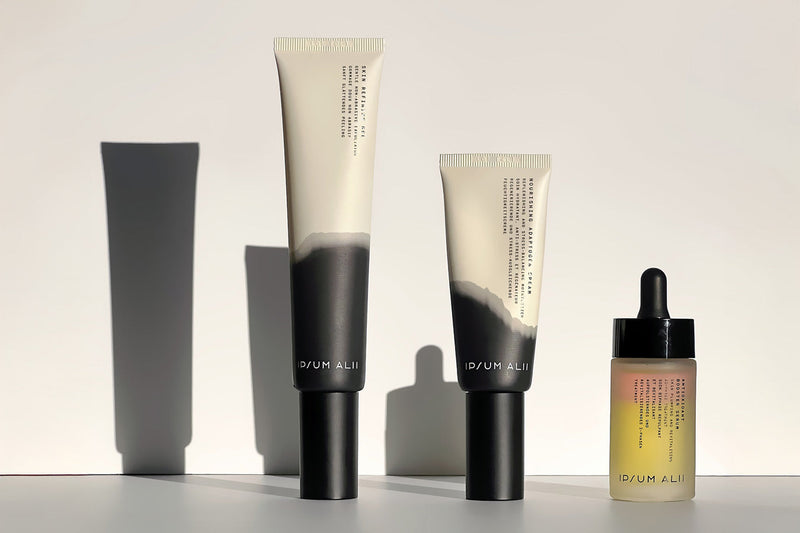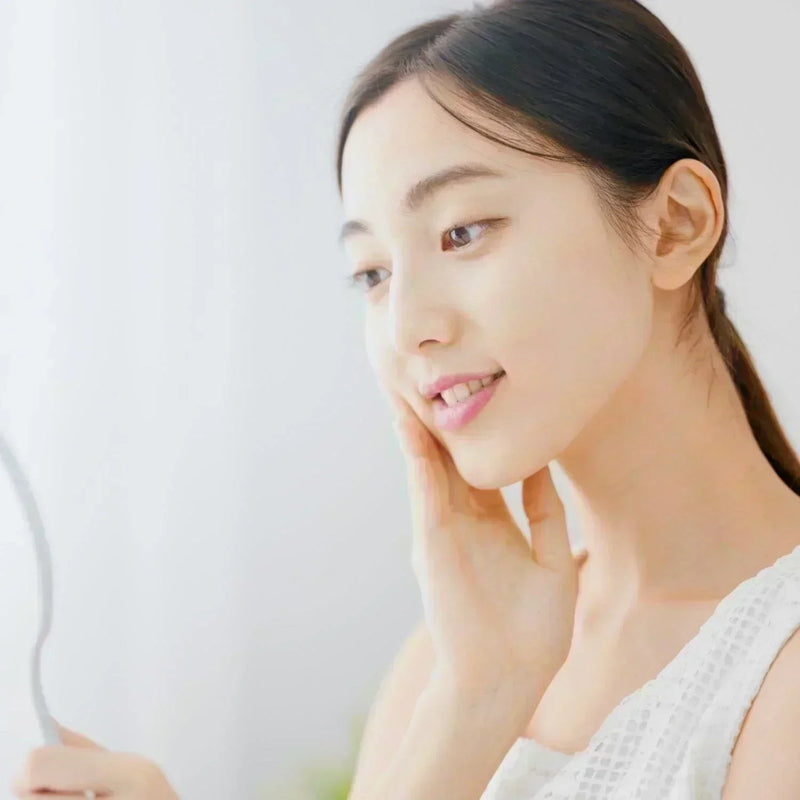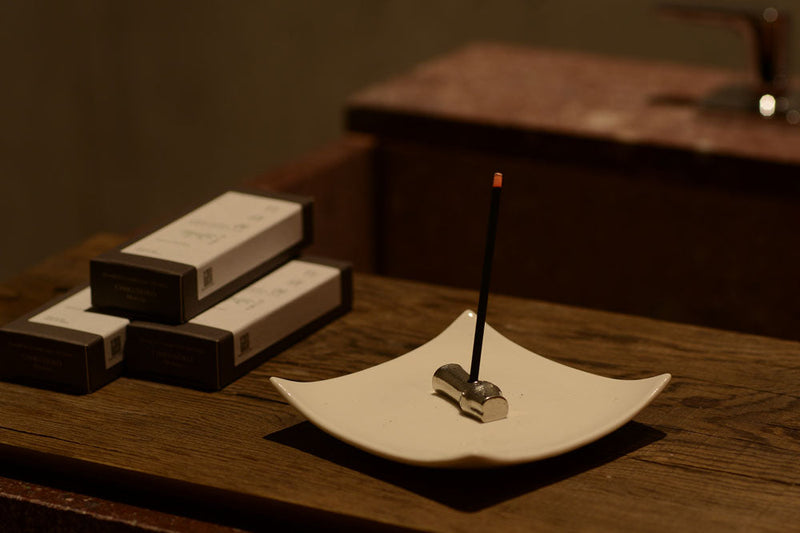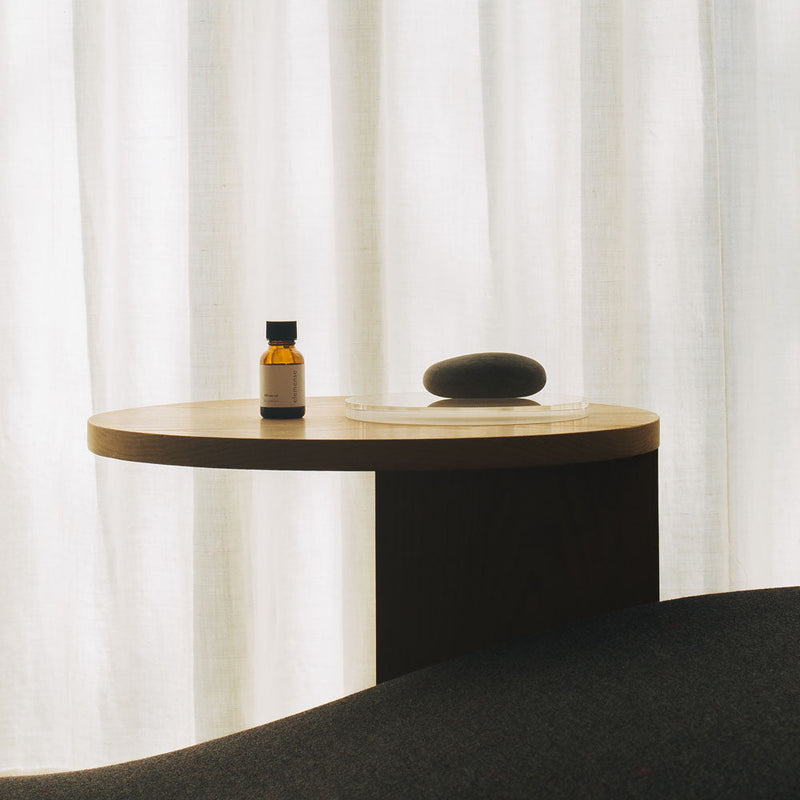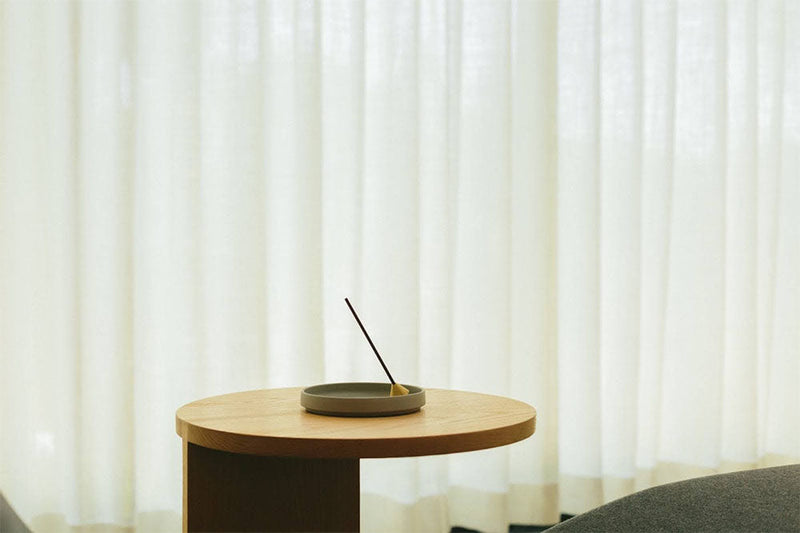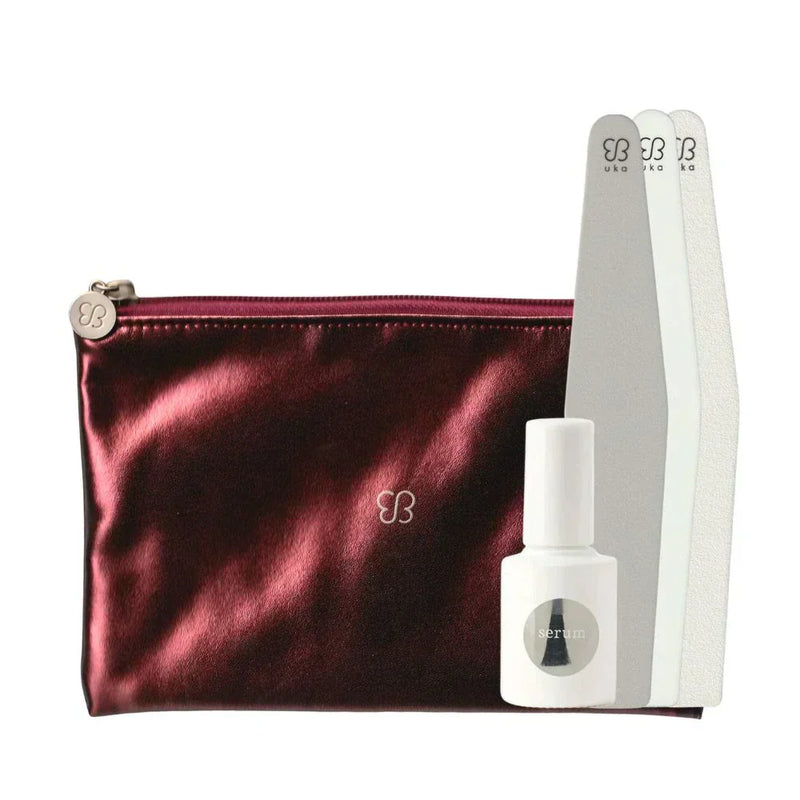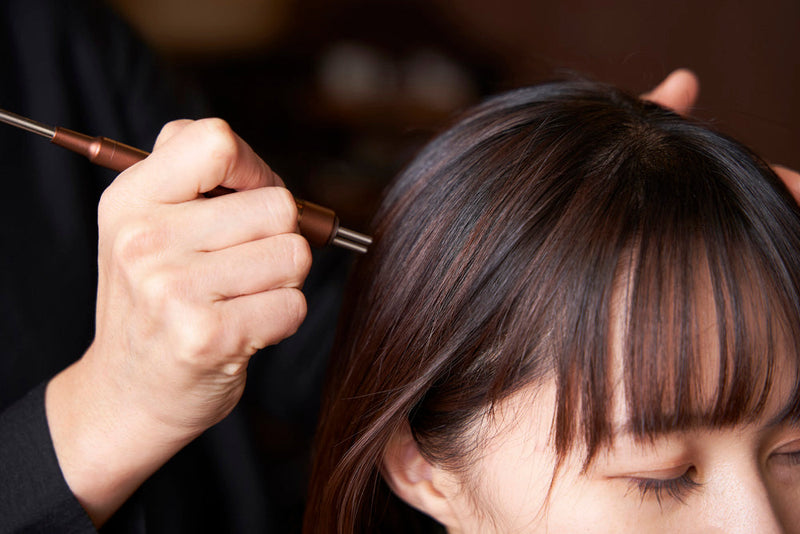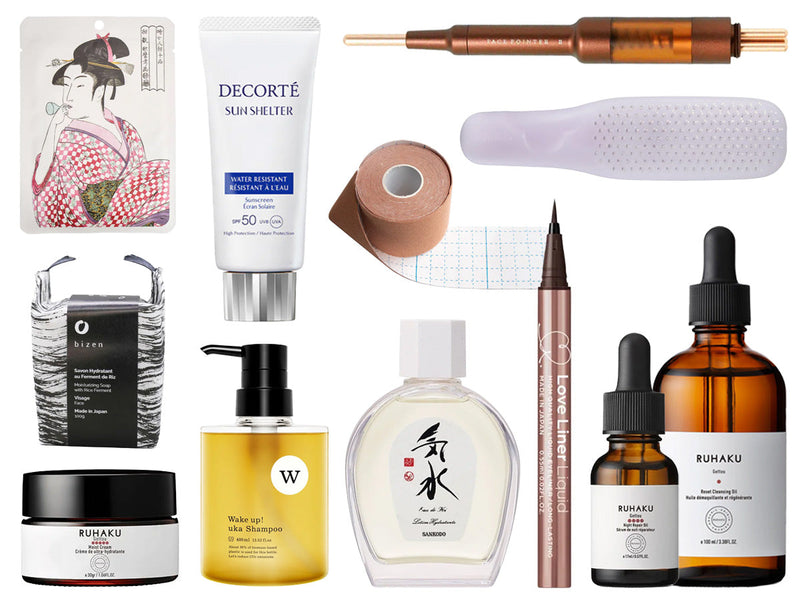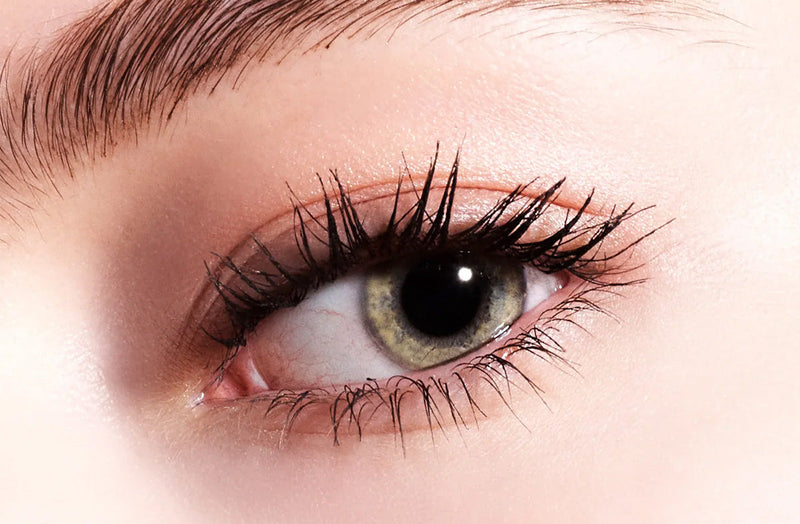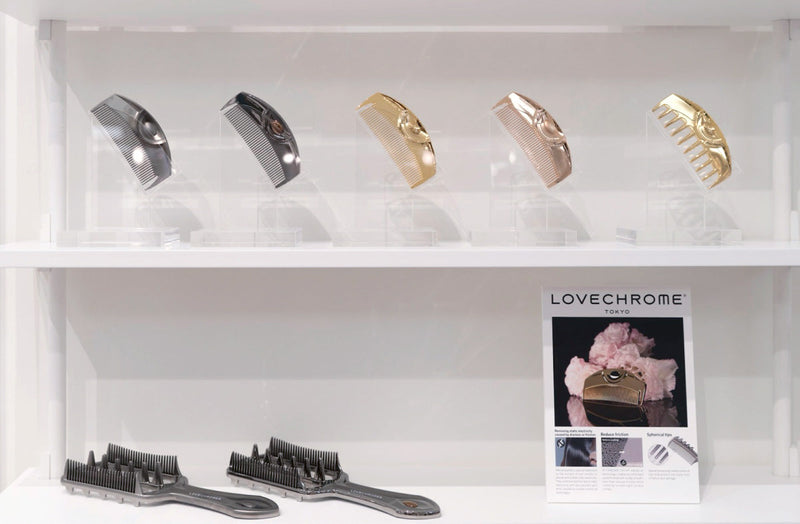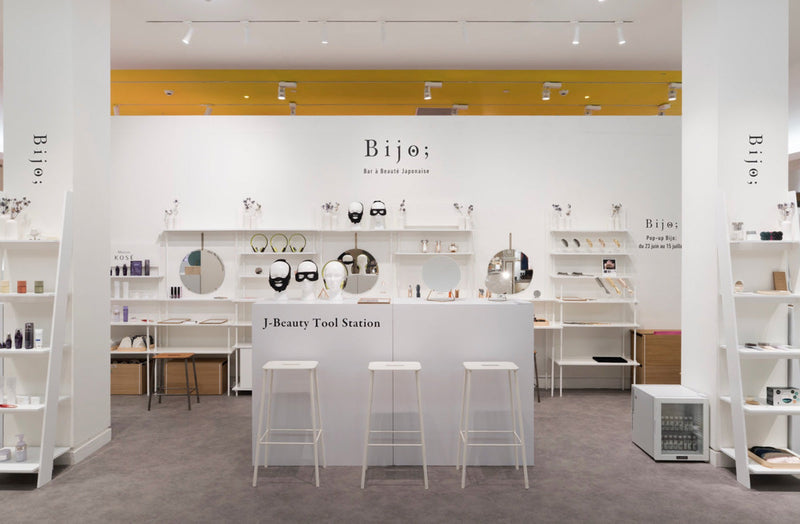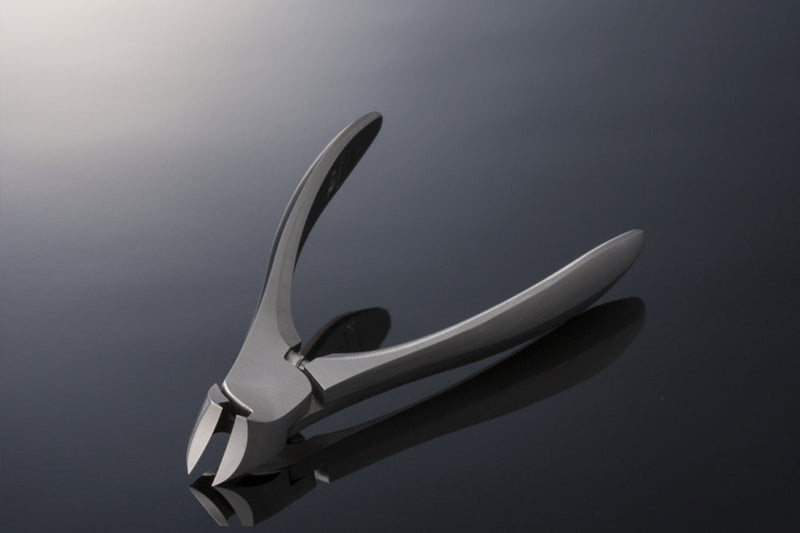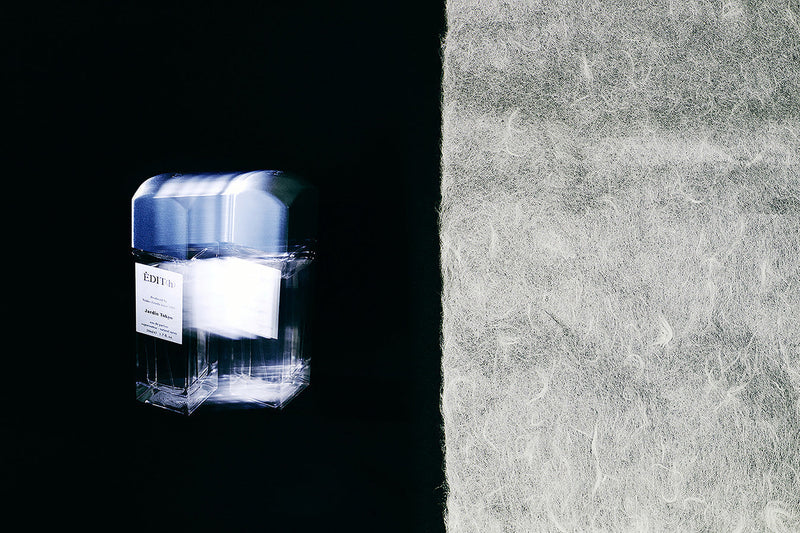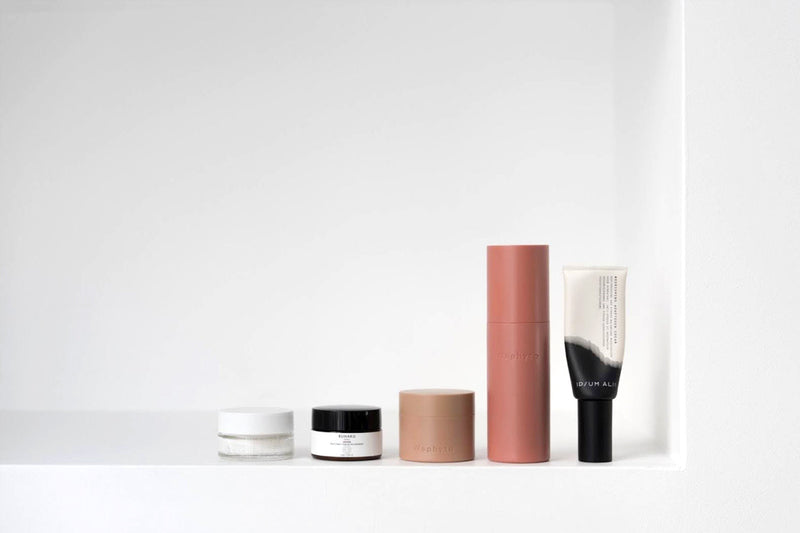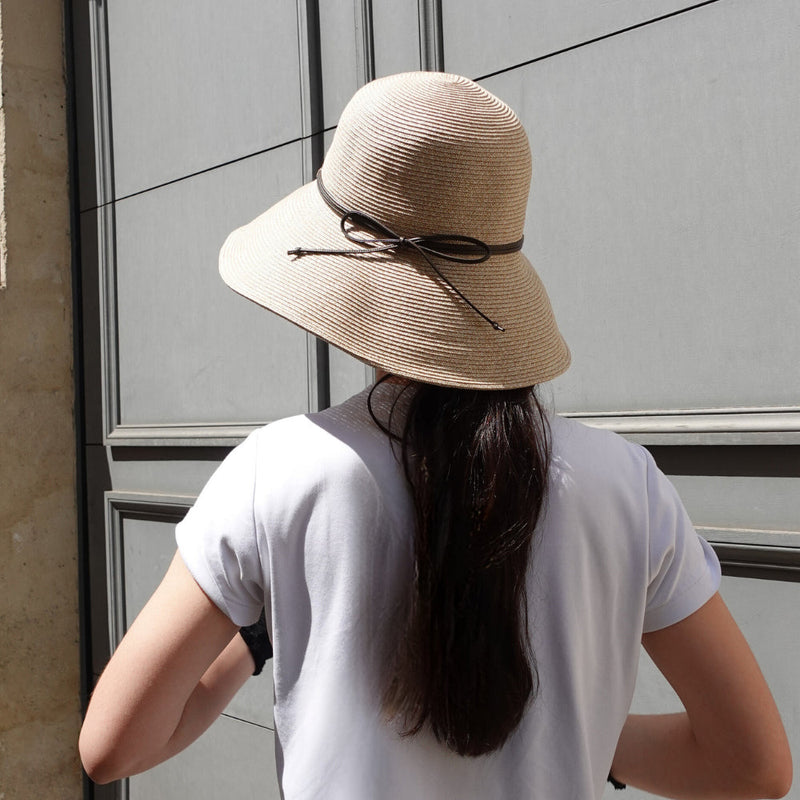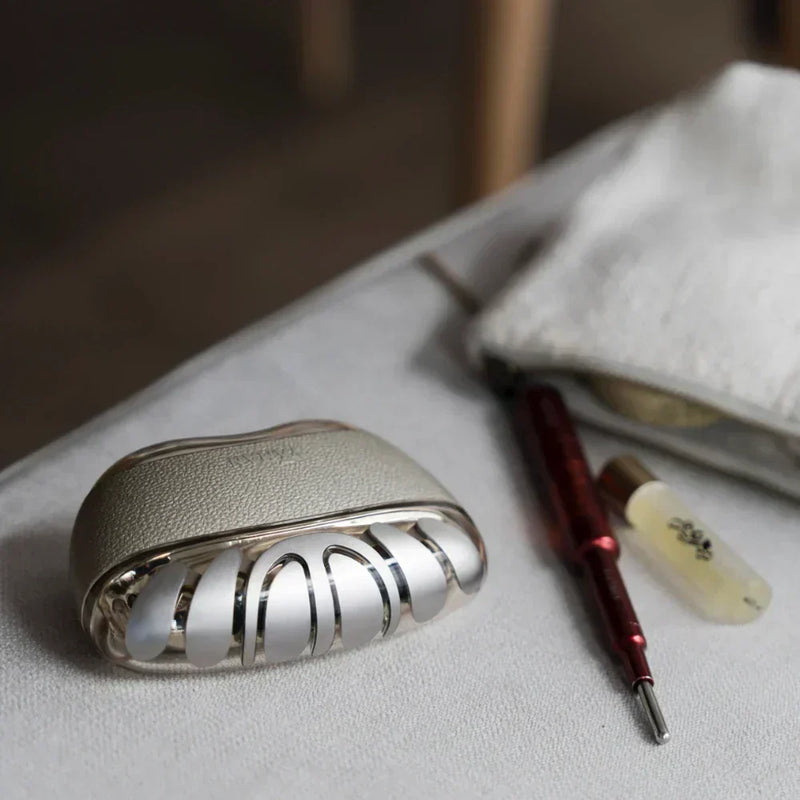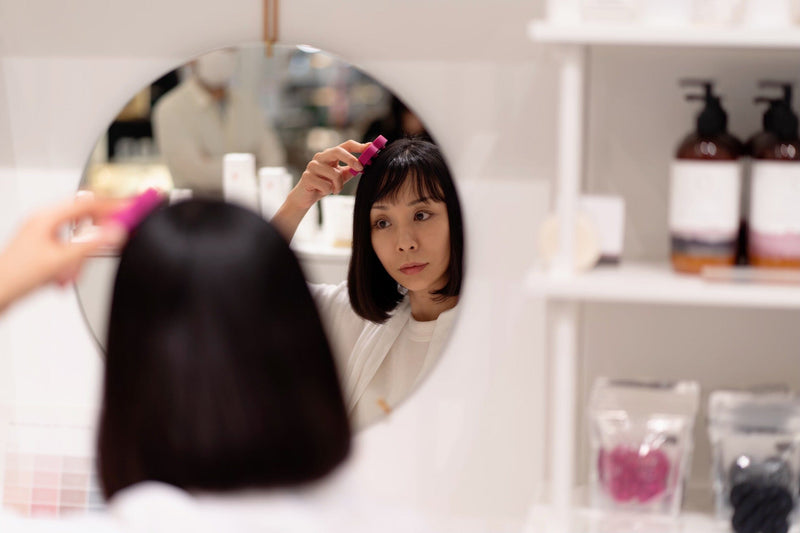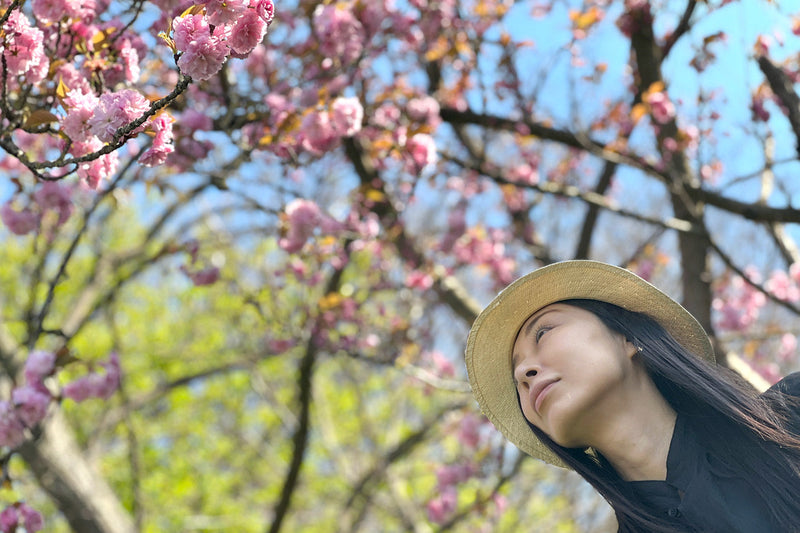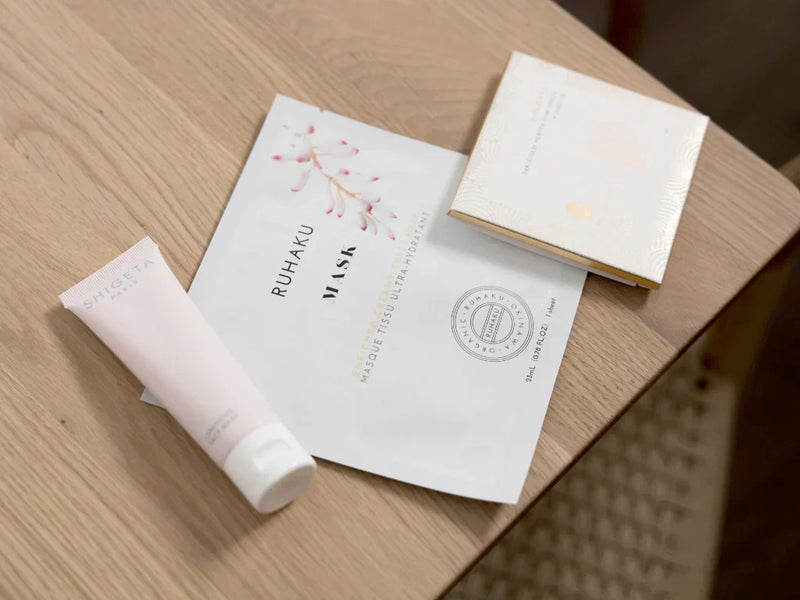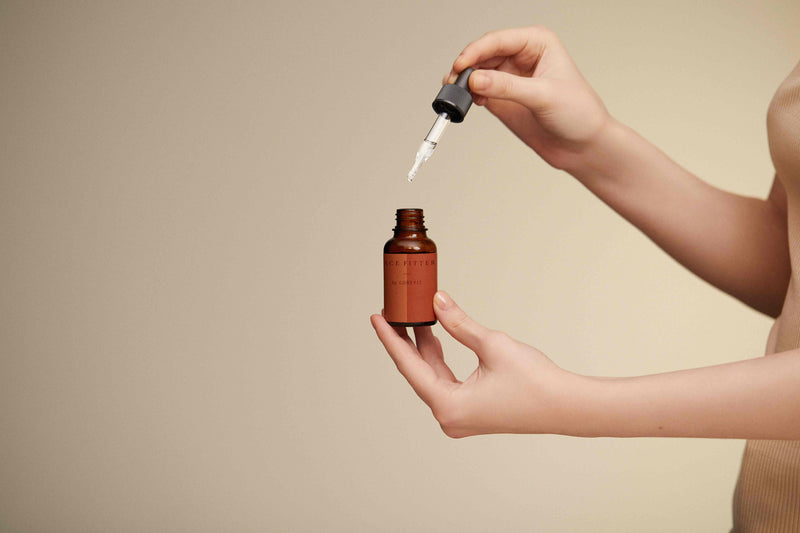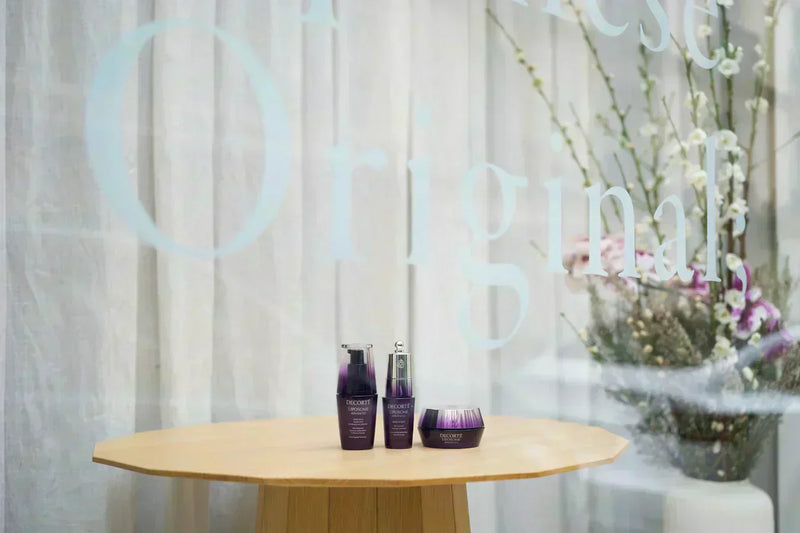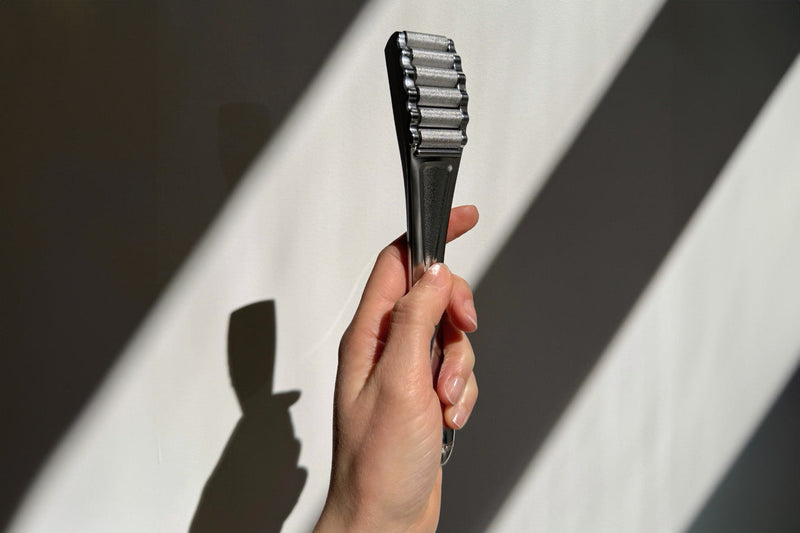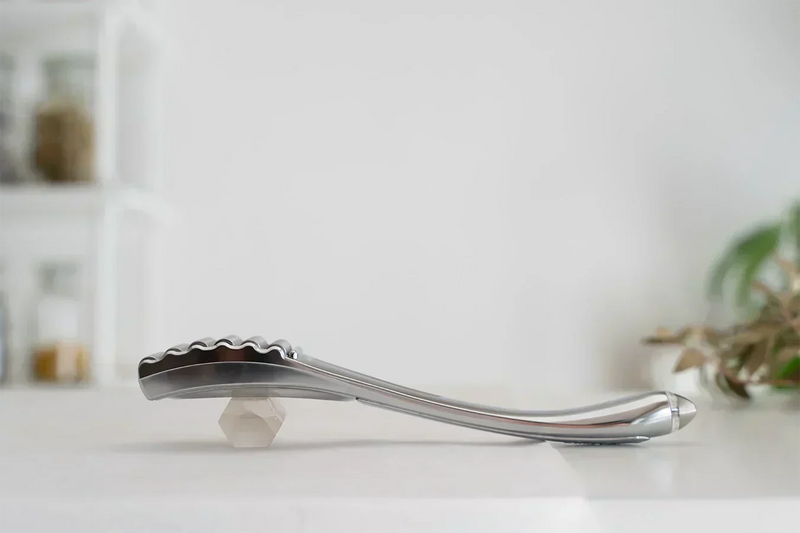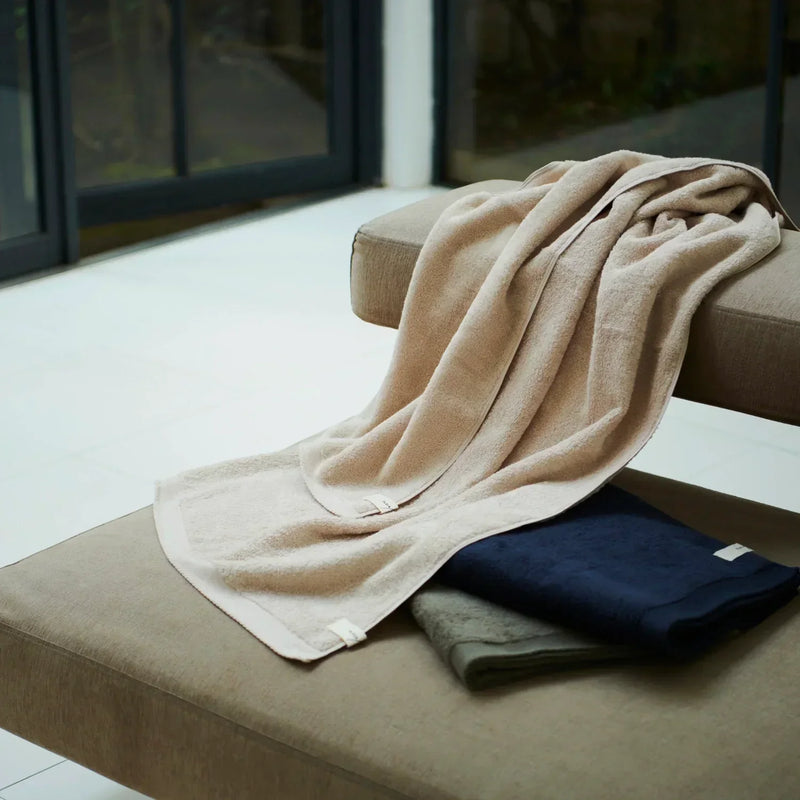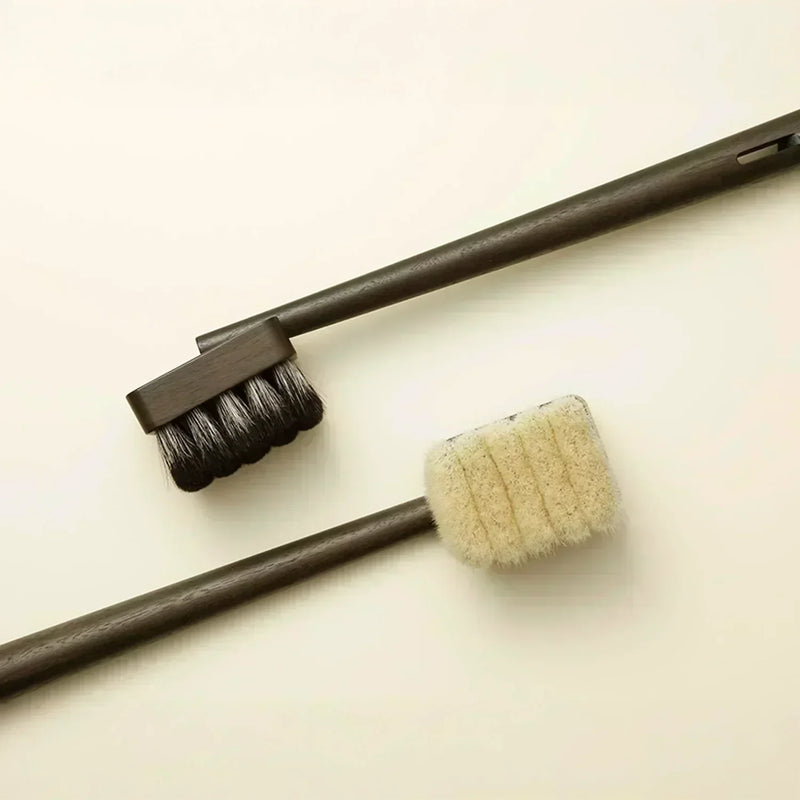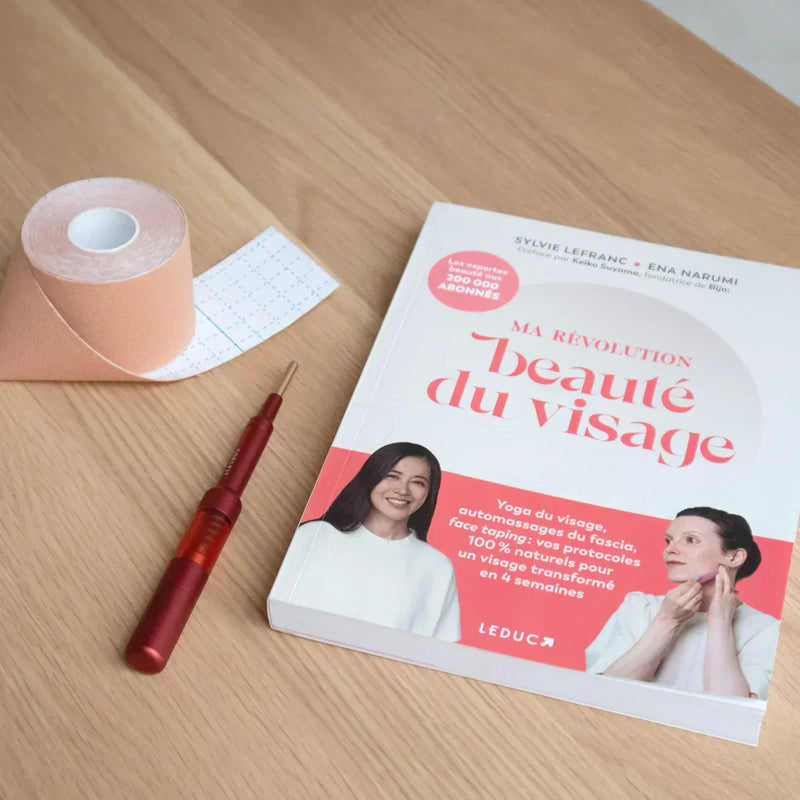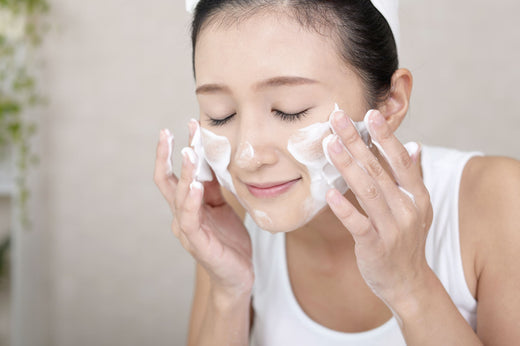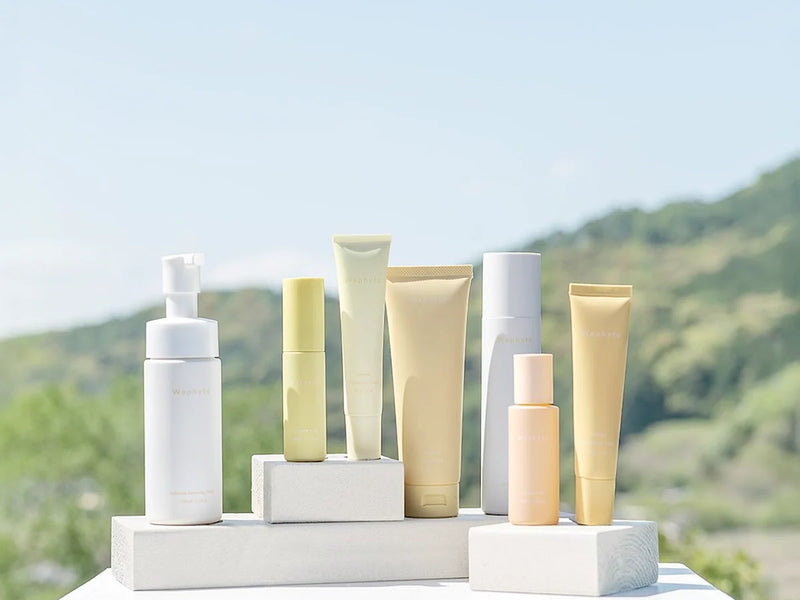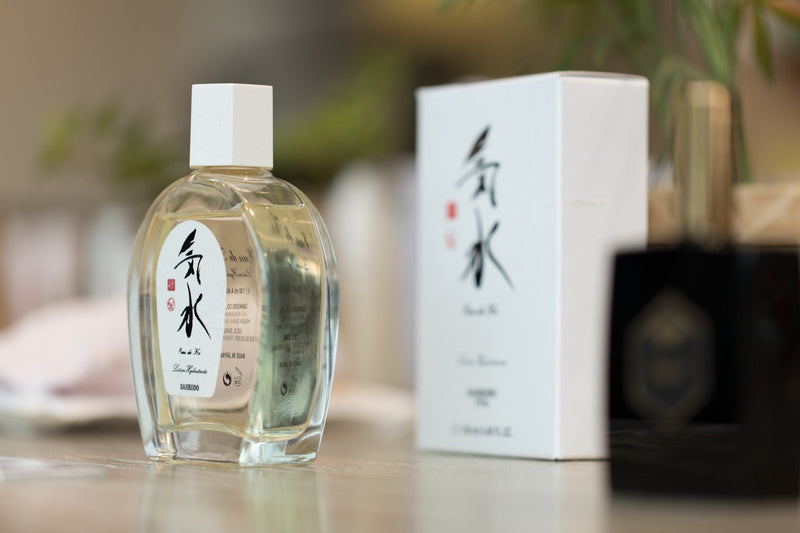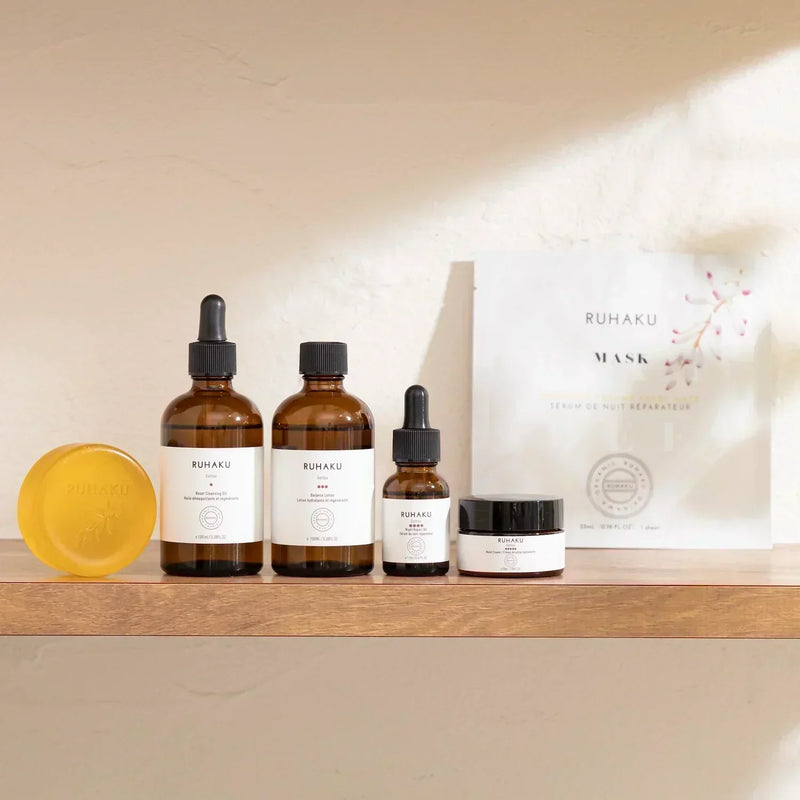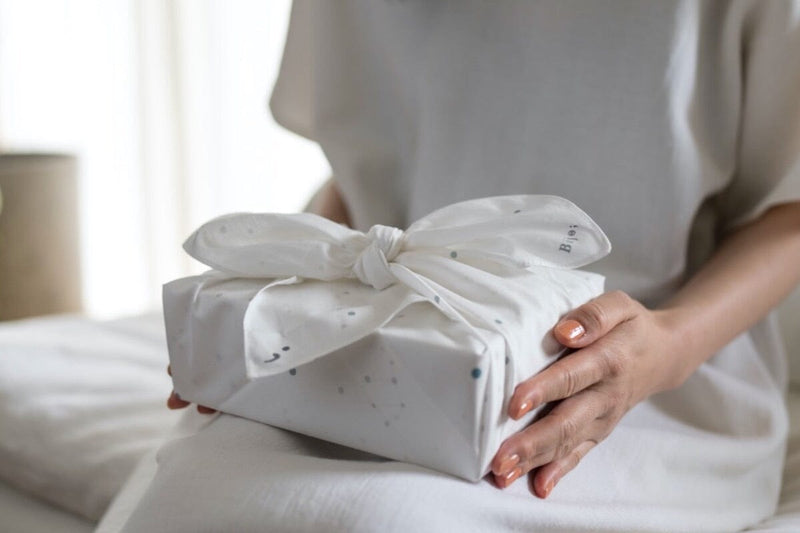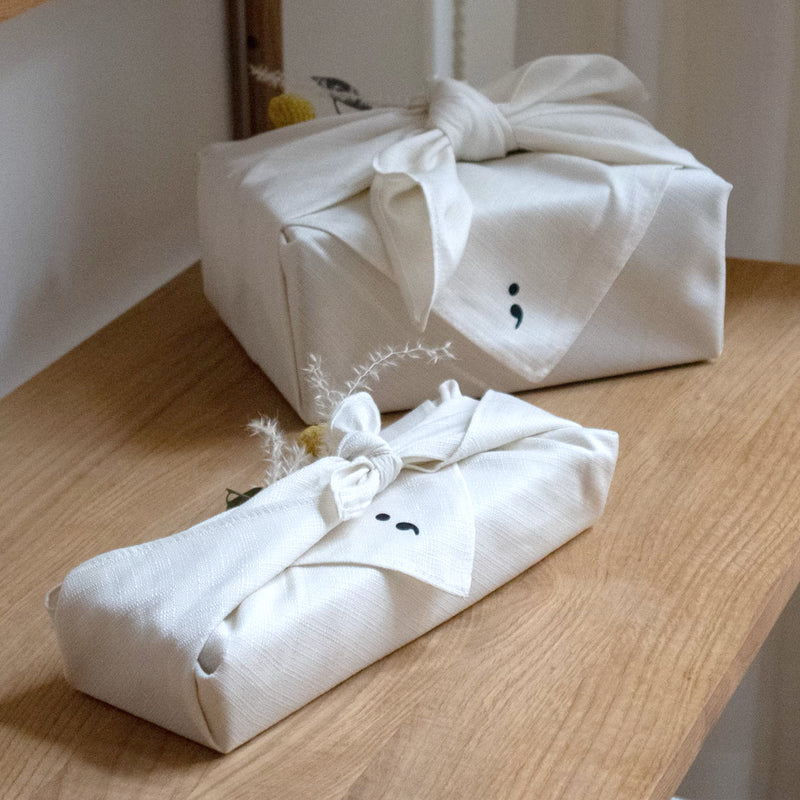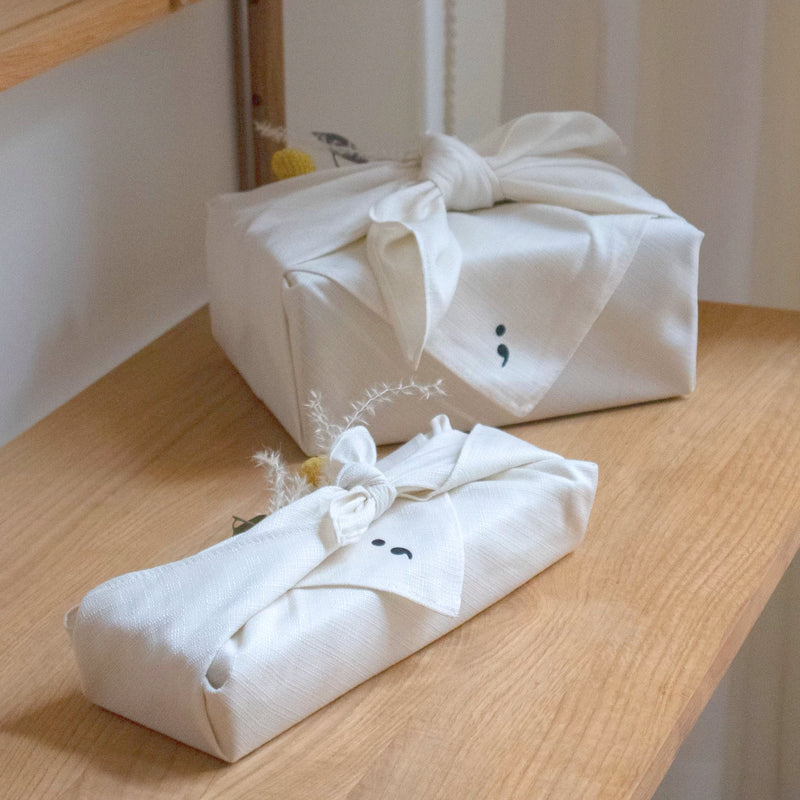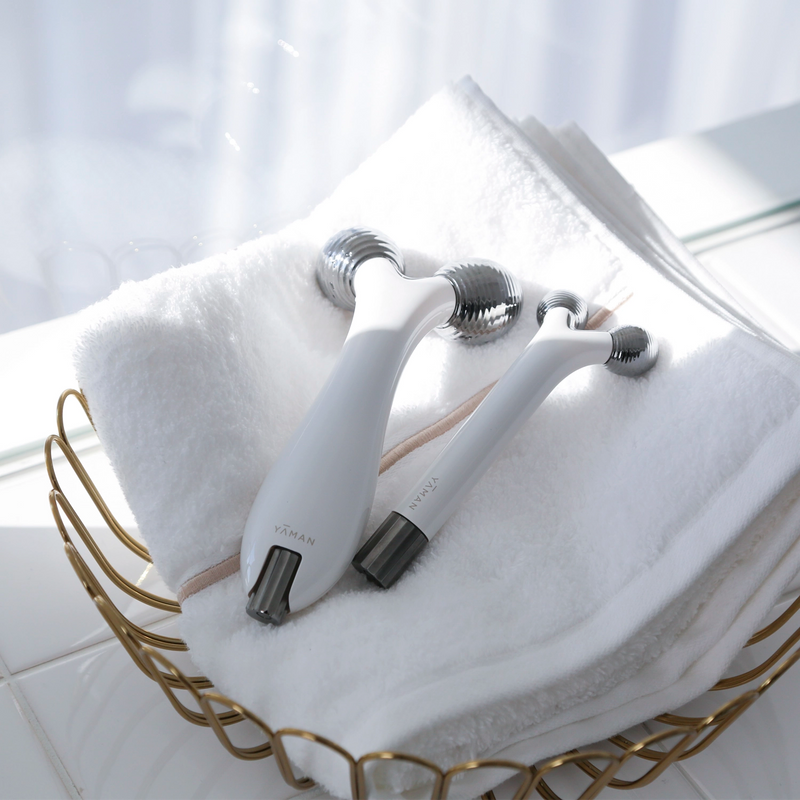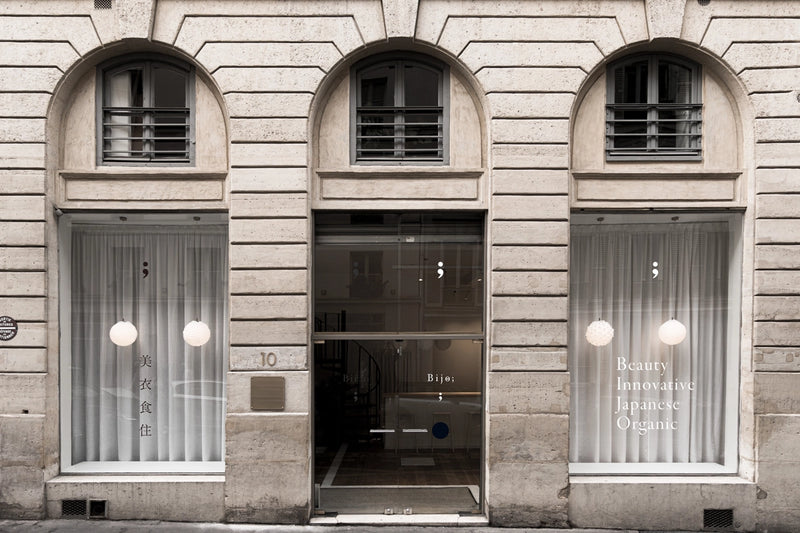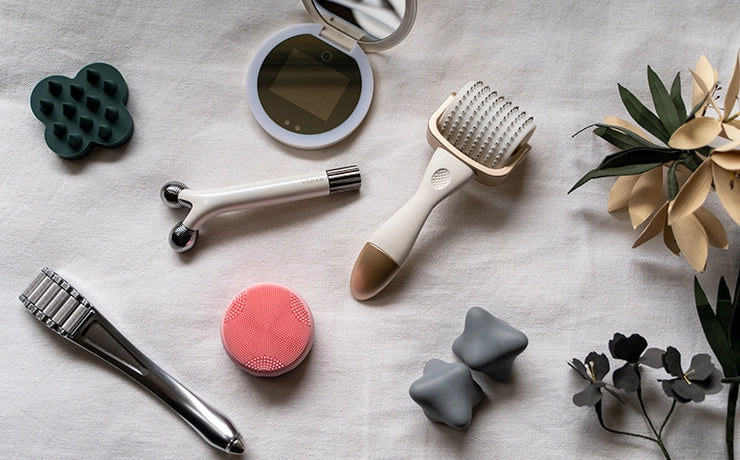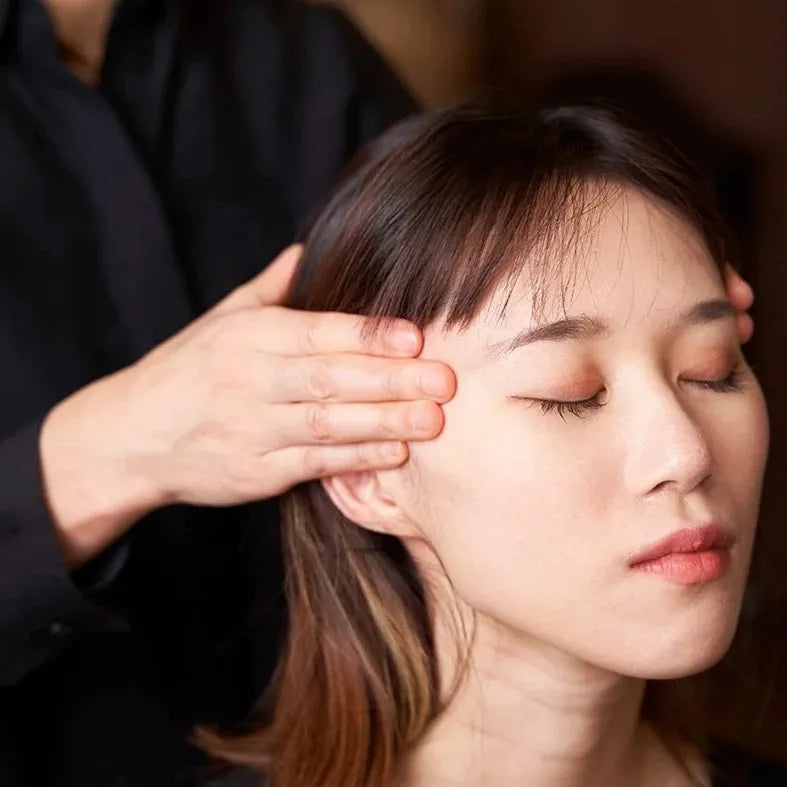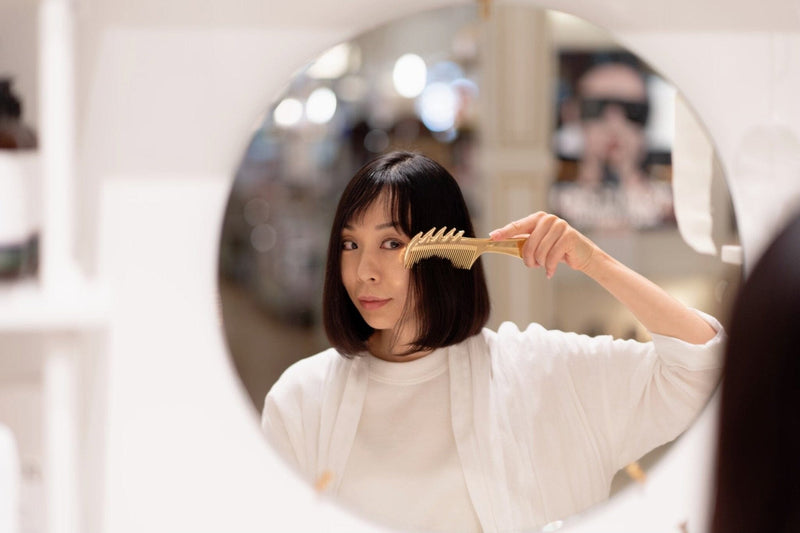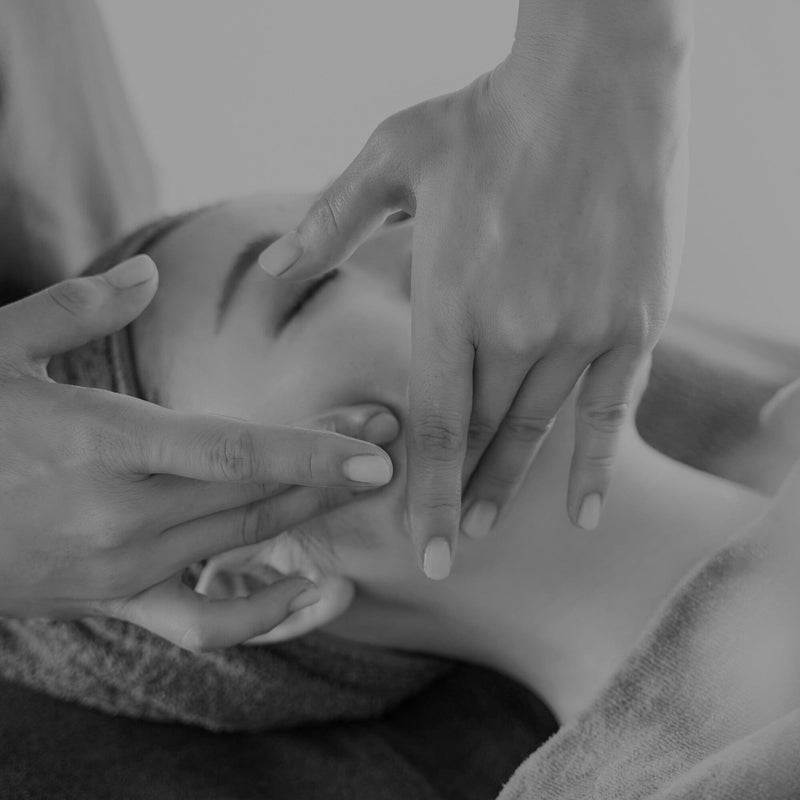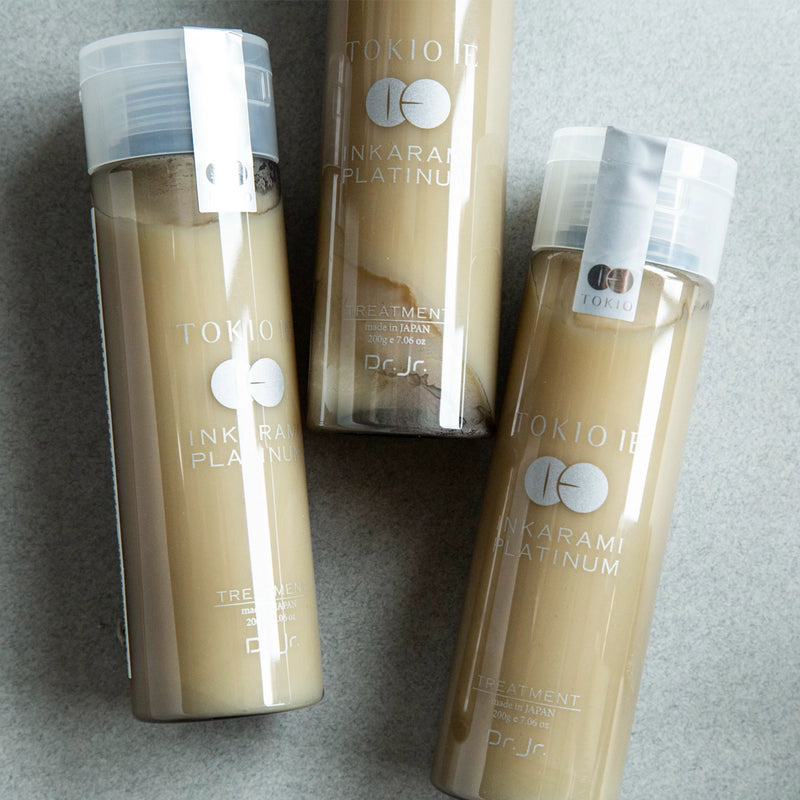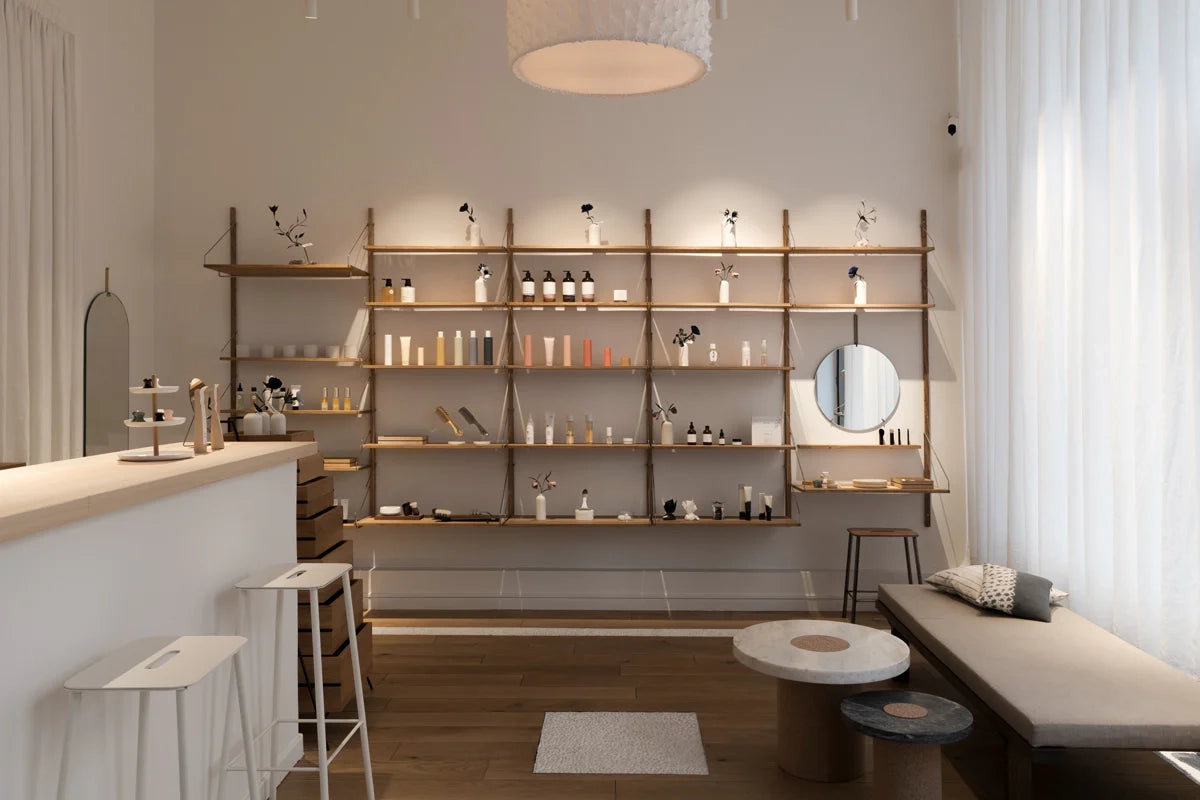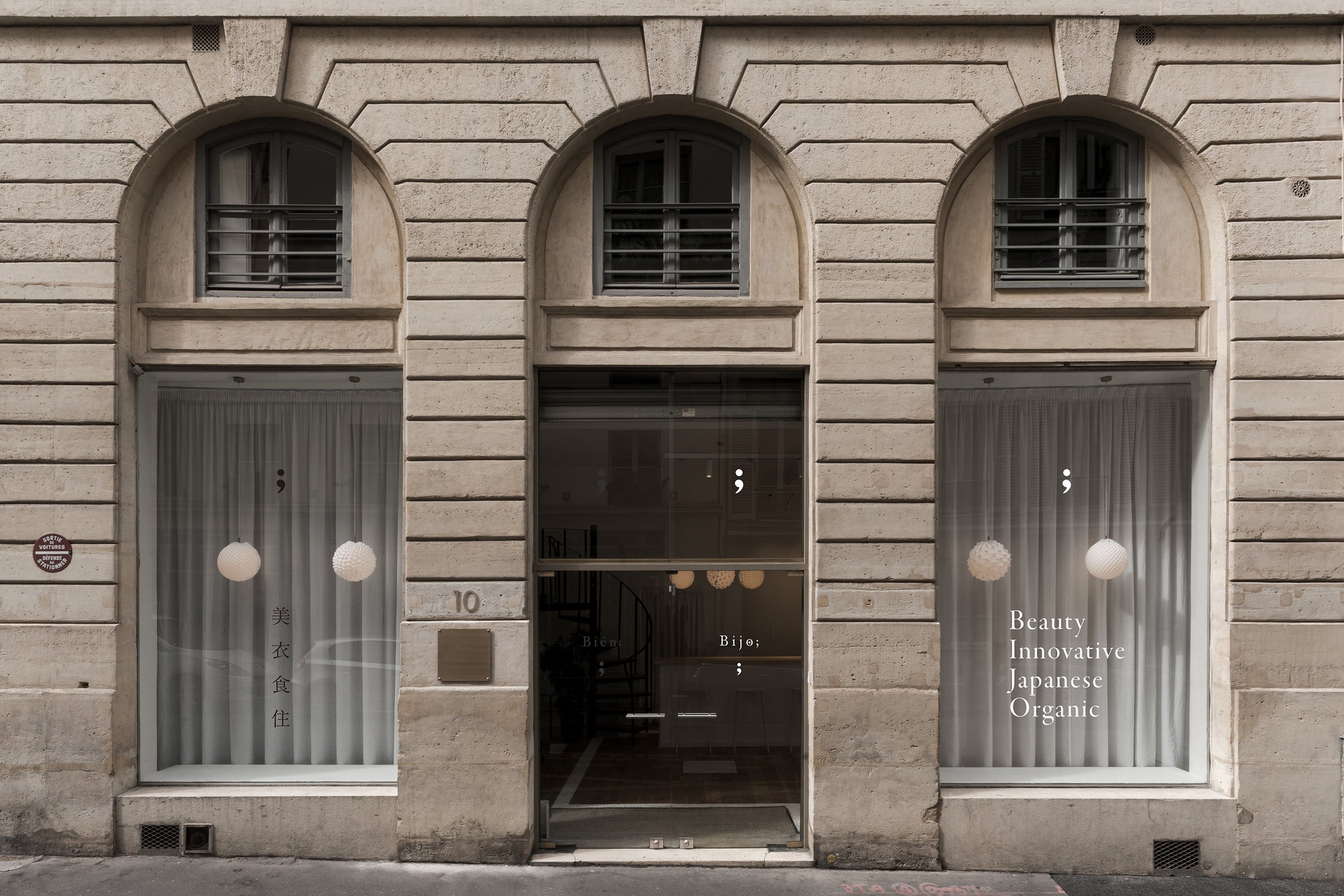1. Origins & Vision
Could you tell us about the origins of IPSUM ALII?
The origin of IPSUM ALII is a personal journey of continuous evolution for both of us, which began during our years in Japan. It was there that we discovered that skincare is based on ongoing maintenance — a philosophy very close to Kampo, which deeply inspires us. We completely rethought well-being through a Japanese lens, particularly the Kampo principle that inner balance is the key to outer radiance.

“In Japan, Kampo teaches that consistent prevention is far more effective than reactive repair.”
What inspired you to create this brand?
Our inspiration comes directly from our life in Japan, where we discovered a radically different vision of well-being: the body and mind are seen as one unified system. We spent our free time enjoying the regenerative warmth of onsens, receiving regular Japanese acupuncture sessions with moxibustion — where the gentle heat of dried mugwort, a Kampo plant, combined with fine needles, was used to strengthen the blood (Ketsu) and stimulate the flow of energy (Ki).
The decisive moment, however, was a personal journey with Kampo medicine. For me, Kikoc, chronic eczema led me to Dr. Watanabe, a Kampo dermatologist in Tokyo. While other approaches only brought temporary relief, his Kampo formulation was the first to truly solve the issue, completely clearing my skin. It was a profound lesson: you must treat the cause, not just the symptoms.
The sum of these experiences in Japan — this feeling of rebalancing — became the foundation of IPSUM ALII. We realized that the most effective skincare does not just treat the surface; it supports the entire skin ecosystem. This philosophy continues to guide our brand.
“Our vision was to create skincare that combines the wisdom of Japanese herbal medicine with advanced Japanese biotechnology.”

Were you looking for something in skincare that you couldn’t yet find?
Absolutely. We noticed that many products only address symptoms. We were looking for something more fundamental — a dual approach that is both preventive and corrective. Our vision was to create skincare that combines the wisdom of traditional Japanese herbal medicine with advanced Japanese biotechnology for lasting efficacy. For us, skin longevity depends on the proactive protection and strengthening of the skin barrier from the start.
This philosophy is deeply rooted in Kampo, which teaches that consistent prevention is much more effective than reactive repair. In Japan, Kampo is also used as a complementary treatment alongside conventional medicine.
2. Brand Identity
Why did you choose the name IPSUM ALII?
The name came to us naturally. Both words are derived from Latin, the language of medicine, which resonated with us as many medicinal plants bear Latin names. “IPSUM” means “oneself,” and “ALII” means “the other.” For us, IPSUM ALII expresses this idea: every step we take to care for ourselves (IPSUM) becomes a step toward caring for others (ALII). We believe that only when we feel healthy and balanced can we truly take care of others.
Kampo is at the heart of your approach. Could you explain what it is and how it is reflected in your formulas?
The heart of Kampo lies in the harmonious balance of the body’s three fundamental elements: Ki (energy), Ketsu (blood), and Sui (water). For IPSUM ALII, this means that we have carefully selected specific Kampo herbs for each product, targeting imbalances in Ki, Ketsu, and Sui. To make this principle tangible, we even integrated it into our packaging through a unique visual indicator showing which elements are supported by each formula. Thus, an ancient principle of inner balance becomes a modern, intuitive guide to skin health.

3. Design & Product Experience
Your box design is very distinctive. What inspired it?
We collaborated with designer and art director Tomomi Maezawa, known for her graphic work on Wes Anderson’s Isle of Dogs. We drew inspiration from Shibori, the Japanese art of intricate dyeing, to convey through visuals the same level of craftsmanship found in our formulations. The foundation of our packaging features three colors, deeply symbolic in Japanese art, representing the three pillars of Kampo: Ki (energy – orange), Ketsu (blood – red), and Sui (water – blue).

The texture of your gel is unique, almost surprising. Could you tell us more about it?
We were seeking a solution suitable for sensitive and sensitized skin — those moments when the skin reflects internal stress or external aggressions. We wanted a formula as gentle as a chemical peel, yet delivering the immediate results of a mechanical peel. Our Osaka laboratory introduced us to an innovative texture, very common in Asia but still new in Europe. It was love at first sight.
The gel works through a dual process: it reacts with the skin’s keratin (chemical action) to form small gel-like particles, which are then gently rolled away with the fingers (mechanical process). It is incredibly gentle and leaves the skin smooth and clear in seconds. The ritual can also be extended into a soothing facial massage that stimulates blood circulation and visibly revives the complexion.

Your bi-phase serum contains a rare and specific ingredient. Could you tell us more?
“Our bi-phase serum is built on two pillars: wild Murasaki root, known for its anti-inflammatory and antioxidant properties, and a complex of hyaluronic acids and squalane derived from plant fermentation.”
Indeed! In fact, our bi-phase serum is defined not by one rare ingredient but by two essential pillars that make it unique: a precious wild plant and a hydrating base derived from sustainable bioengineering.
The root of Lithospermum Erythrorhizon (Murasaki), harvested in the wild, gives the oil its beautiful natural pink hue and provides remarkable anti-inflammatory and antioxidant benefits.
At the same time, our complex of four types of hyaluronic acid (Sodium Hyaluronate, Hydrolyzed Hyaluronic Acid, Sodium Acetylated Hyaluronate, Hydroxypropyltrimonium Hyaluronate) and our squalane are obtained through plant fermentation. This process ensures a formula designed to work in perfect synergy with our powerful blend of Kampo herbs.

4. Values & Inclusivity
The brand seems to be designed as unisex. Was that intentional from the beginning?
“We believe that self-care is evolving: men’s routines are finally reaching the same level of care and sophistication as women’s.”
At first, we created IPSUM ALII with women like us in mind — active, rooted in traditions, and passionate about innovative rituals. But we soon discovered, through customer feedback, that their male partners were enthusiastically using our products, especially the Skin Refining Gel and Nourishing Adaptogen Cream.
Our design, inspired by Japanese craftsmanship, first attracts men; but it is the formulas and textures that keep them coming back. We are delighted that our approach naturally turned out to be inclusive.

How important is that to you?
Even if it was not intentional, discovering this universal appeal is a great source of pride for us. We believe the self-care landscape is evolving, and that men’s routines are rightfully reaching the same level of care and sophistication as women’s.
5. Well-being Addresses
To end on an inspiring note: could you share three of your favorite wellness spots in Japan?
- Gora Kadan, Hakone: an exceptional ryokan nestled on the hillside, between onsen and nature.
- Nozawa Onsen, Nagano: a thermal village with 37 public baths and an authentic mountain atmosphere.
- Inn the Park, Shizuoka: glamping in the heart of the forest, between private villas and suspended spheres, for a true forest bath experience.
And three favorite spots in France?
- En Spa, Paris (near Biën): remarkable cranio-facial massage, beyond simple relaxation.
- Yonaguni Spa, Parc Hotel Obernai: an immersion inspired by the mysterious site of Yonaguni in Okinawa.
- Maison Gokan, Lake Annecy: a retreat blending Japanese and Scandinavian inspirations.


